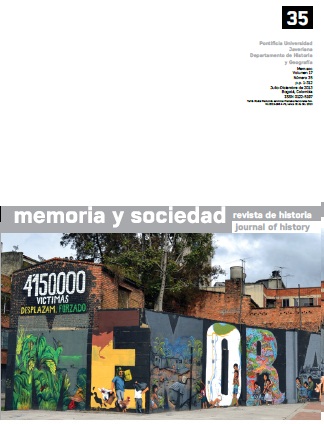Abstract
This article goes back to museification as a particular way of construction and legitimation of collective memory. Museification generally refers to political and cultural actions deployed by institutions and civil servants that are aimed at selecting and placing an "object"—whether cultural or natural, as well as individuals or communities— within lines of reasoning and speeches that "petrify" the historical and cultural meanings of these objects. In this paper, we understand museums as institutional places par excellence in which memorial state activities tend to converge. In particular, the article explores two cases in which the museification process can be clearly identified. First, the controversy surrounding the proposal of including the towel of the recognized guerrilla leader Manuel Marulanda Vélez, (Tirjofijo), in the collections of the National Museum of Colombia in early 2001.Secondly, the article explores the case of some indigenous communities located in the country's southern jungles, in which the state lines of reasoning of the territorial control seem to conceive indigenous people and their lands as analogous to "eco- museums". We try to argue how state initiatives on social memory are essentially a field of paradoxes and social struggles. To do this, we rely on a theoretical discussion about memory studies and their relation to specific categories of the museological theory.The journal Memoria y Sociedad is registered under a Creative Commons Attribution 4.0 International Public License. Thus, this work may be reproduced, distributed, and publicly shared in digital format, as long as the names of the authors and Pontificia Universidad Javeriana are acknowledged. Others are allowed to quote, adapt, transform, auto-archive, republish, and create based on this material, for any purpose (even commercial ones), provided the authorship is duly acknowledged, a link to the original work is provided, and it is specified if changes have been made. Pontificia Universidad Javeriana does not hold the rights of published works and the authors are solely responsible for the contents of their works; they keep the moral, intellectual, privacy, and publicity rights.
Approving the intervention of the work (review, copy-editing, translation, layout) and the following outreach, are granted through an use license and not through an assignment of rights. This means the journal and Pontificia Universidad Javeriana cannot be held responsible for any ethical malpractice by the authors. As a consequence of the protection granted by the use license, the journal is not required to publish recantations or modify information already published, unless the errata stems from the editorial management process. Publishing contents in this journal does not generate royalties for contributors.

